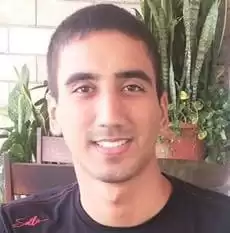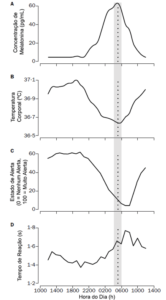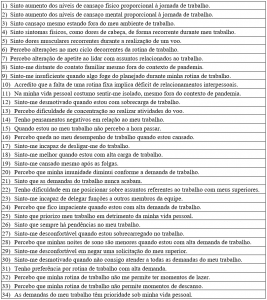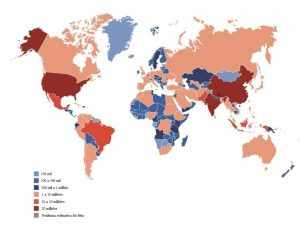ORIGINAL ARTICLE
CAROLINO, Gustavo Mateus [1]
CAROLINO, Gustavo Mateus. Deontology as an instrument of professional support in aviation practice: we need to talk about ethics. Revista Científica Multidisciplinar Núcleo do Conhecimento. Year 04, Ed. 12, Vol. 05, p. 16-24. December 2019. ISSN: 2448-0959, Access link: https://www.nucleodoconhecimento.com.br/science-aeronautics/deontology-as-an-instrument
ABSTRACT
This article consists of a study that addresses the importance of establishing a code of ethics and deontology in order to support the decision-making of those professionals who deal with aviation and who can practice it. To this end, exploratory research was carried out on the subjects that permeate professional ethics, using research in books, scientific articles, among other means that could support this research, given the scarcity of studies on the subject in aviation. At the end of the study, it was found that a “code of ethics and deontology” is very important for the establishment of a profession in its fullest sense and that the lack of this tool in aviation affects the professional culture, requiring a lot of attention.
Keywords: Ethics, professionalism, aviation, deontology, profession.
1. INTRODUCTION
According to Diniz (2001 apud ANGELIN, 2010) and Freidson (1996 apud PEREIRA and NETO, 2003), the establishment of a profession in its full meaning is strongly associated with the existence of a professional code of ethics: deontological codes. However, today, in the professional practice of aviation, there is no legal existence of this type of instrument (CAROLINO, 2017).
Thus, in view of the relevance of professionalism for the safe development of aviation, as well as the importance of professional ethics in the phenomenon of professionalization, the present study was carried out that addresses the importance of deontology as an instrument of professional support, in the organization of work. , in aviation practice.
As a research problem, the following question was raised:
Can the implementation of a code of ethics for professionals who practice aviation improve the quality of services provided in the practice of work?
This work is justified by the absence of studies on aviation ethics. Therefore, we sought to understand how the lack of legally established ethical mechanisms impact the quality of work in aviation practice, in a general way, from the perspective of the discipline of professional ethics.
2. METHODOLOGY
An exploratory research was carried out which, according to Gil (2010), aims to provide greater familiarity with the problem, by means of collecting information, with a view to making it more explicit or building hypotheses. Thus, the delimitation of the topic of interest and the definition of the research problem were carried out.
Then, the survey technique was carried out, using information on the subject in question, in findings contained in the bibliography on the subject, in books, in research in scientific articles and in other sources that could support the bibliographic research, which is based on the literature on the topic (GIL, 2010).
3. RESULTS
3.1 ETHICS, MORALS AND DEONTOLOGY
The word ethics derives from the Greek word éthos which means “way of being”. It is a discipline of philosophy dedicated to studying and exploring the aspects of human behavior in society (MATTAR, 2010, p.240).
Within the field of ethics are morals and deontology. Deontology derives from the Greek word déon and means “duty” or “what is obligatory” and is applied to professions (MATTAR, 2010).
Ethics, morals and deontology are related as can be seen in the scheme represented by Figure 1.
Figure 1 – Relationship between ethics, morals and deontology, according to Prudente (2000 apud MATTAR, 2010)
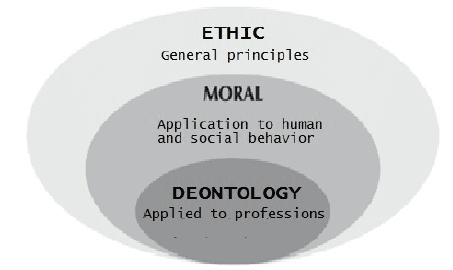
In deontology, the verb should in the imperative indicates the way of being obligatory in which someone must behave in order to correctly participate in a certain professional group. These codes of ethics are legally established through the professionals themselves, holders of a particular profession (MATTAR, 2010).
Therefore, it was found that codes of ethics are treated that define ethical parameters that govern principles of mandatory observance in professions (MATTAR, 2010).
3.2 RELEVANCE OF PROFESSIONAL ETHICS FOR PROFESSIONS
When a profession is established, it acts as a guaranteeing filter that the performance of certain services in society can be conducted in a safe and responsible manner, if they are performed by certain professionals. In this context, the establishment of a profession in its full meaning is associated, among other attributes, with technical-scientific knowledge, professional self-regulation and the existence of a code of professional ethics (ANGELIN, 2010).
The existence of ethical treaties favors professionalism because, according to Machado (2009), professional performance can then be guided by a repertoire of socially agreed values, supported by fundamental principles that go far beyond the pursuit of profit or a mere personal benefit. of the agent when performing a certain job, which favors ethical decision-making.
According to Mattar (2010), in the event of non-compliance with codes of ethics, sanctions are provided for the offender that can even lead to the loss of legal capacity to exercise a certain profession, protecting society and the professionals themselves – truly committed to the values of a particular profession – of possible deviations within the professional group.
3.3 PROFESSIONAL ETHICAL DECISION-MAKING AND AVIATION
Decision making is a cognitive process that involves evaluating and choosing an alternative among several options for conduct (STERNBERG, 2000). Thus, as Honorato (2014) explains in his work, an action can be the necessary means to ensure, for example, the fulfillment of care duties required by aviation professionals.
It is suggested, however, that acceptable or unacceptable conduct from the point of view of professional ethics are not well defined in aviation practice, since, as explained, professionals who practice aviation lack a legally established code of ethics (CAROLINO, 2017).
Developing skills, competences and ethical attitudes, according to Mattar (2010, p.240), will imply “being able to identify, in each situation, what is essential for decision-making, especially in the case of complex situations”.
4. DISCUSSION
The existence of a code of ethics and deontology is very important for the establishment of professions (DINIZ, 2001 apud ANGELIN, 2010; FREIDSON, 1996 apud PEREIRA and NETO, 2003). However, the present study did not identify the existence of a code of ethics legally in force for professionals who practice aviation, which indicates that there is still no official profession in its full meaning dedicated to professing aviation.
As explained by Mattar (2010), deontological codes are treated that define ethical parameters that govern principles of mandatory observance in the exercise of professions. The existence of these codes favors professionalism, because, according to Machado (2009), with their implementation, professional performance becomes guided by a repertoire of socially agreed values, supported by fundamental principles that go far beyond the pursuit of profit or a mere personal benefit of the agent when performing a certain job, guiding ethical decision-making in this performance.
In this context, it was found that the public commitment that professionals assume when professing a certain profession in society makes it necessary to implement a mechanism of professional self-regulation. It is through this type of mechanism that it becomes possible to create, implement and maintain a legal “code of ethics and deontology” which, as explained by Mattar (2010), must be established by the professionals themselves, holders of a particular profession.
As exposed in this work, in aviation, professional practice is related to constant decision-making in order to ensure, for example, the fulfillment of the care duties that professionals are required to do. Thus, decision making is characterized, in this context, as a cognitive process, sometimes complex, which is necessary for problem solving, and is based on choosing between options of ways to proceed in order to achieve a goal.
However, it is suggested that professional ethical decision-making is not well defined in the professional context of aviation, since to date there is no legally established code of ethics for aviation practice (CAROLINO, 2017). Its existence could provide guidance on aspects of discipline and professional conduct, supporting ethical-professional decision-making.
Thus, as mentioned above, the search for ethical mechanisms that guide and discipline the practice of professional work is of great importance to advance in the development and organization of a strong and secure professional culture, in which good professionals can be supported. The existence of a professional code of ethics can also better clarify the wrong modes of conduct that may be considered unacceptable, as they arise, for example, from “deviations from the idea of professionalism”[2], requiring the adoption of corrective measures, therefore, whether educational, administrative and/or even legal.
5. CONCLUSION
As exposed in this work, today, professionals who practice aviation work devoid of professional ethical principles legally agreed through codes of ethics. For this reason, it was verified that there is no official profession in its full sense destined to profess aviation, a fact that requires a lot of attention.
When answering the problem-question of this research, it was found that the quality of professional aviation practice can be improved with the implementation of this type of code, since such professional ethics standards strengthen the culture of professionalism. This occurs because, as exposed by Machado (2009), professional performance would be guided by a repertoire of socially agreed values, supported by fundamental principles that go far beyond the pursuit of profit or a personal benefit of the agent in carrying out a certain work, favoring ethical decision-making in this activity.
It was also found that the public commitment that professionals assume when professing a profession, in its full meaning, requires the implementation of a professional self-regulation mechanism. It is through this self-regulation that it becomes possible to establish a legal and formal “code of ethics and deontology” to guide the profession.
For all these reasons, it is recommended the adoption of a legal code of professional ethics for professionals who practice aviation, like the provisions suggested in Appendix A at the end of this work.
REFERENCES
ANGELIN, Paulo Eduardo. Profissionalismo e profissão: teorias sociológicas e o processo de profissionalização no Brasil. Revista REDD, v.3, n.1. 2010. Disponível em < http://seer.fclar.unesp.br/redd/article/view/4390>. Acesso em 28 de julho de 2017.
CAROLINO, Gustavo Mateus. A profissionalização da prática da aviação: uma abordagem exploratória sobre os rumos do contexto profissional no Brasil. Revista Conexão Sipaer. Vol. 8, No. 1, pp. 3-9. 2017. Disponível em: <http://conexaosipaer.cenipa.gov.br/index.php/sipaer/article/view/403/347 >. Acesso em 28 de julho de 2017.
GIL, Antônio Carlos. Como elaborar projetos de pesquisa. 5. Ed. São Paulo: Atlas, 2010. 184p.
HONORATO, Marcelo. Crimes Aeronáuticos. Brasil. Ed. Lúmen Juris Ltda. 2014. ISBN 978-85-8440-032-4
MACHADO, Nilson José. Competência e profissionalismo: o lugar da ética. Programa ética e cidadania – construindo valores na escola e na sociedade. Programa Ética e Cidadania. Brasil. 2009. Disponível em <http://www.letras.ufmg.br/espanhol/pdf/%C3%89tica%20e%20cidadania/O%20lugar%20da%20%C3%A9tica.pdf >. Acesso em 28 de julho de 2017.
MATTAR, João. Introdução à filosofia. Ed. Pearson. 2010. ISBN 978-85-7605-697-3
PEREIRA, Fernanda Martins; NETO, André Pereira. O psicólogo no Brasil: notas sobre seu processo de profissionalização. Psicologia em Estudo. Maringá. v.8, n. 2, p.19-27. 2003. Disponível em < http://www.scielo.br/pdf/pe/v8n2/v8n2a02 >. Acesso em 28 de julho de 2017.
STERNBERG, Robert J.. Tomada de decisão e raciocínio. Cap.12. In Sternberg, R.J. (Ed.). Psicologia cognitiva (pp. 339-370). Porto Alegre: Artmed. 2000.
APPENDIX – FOOTNOTE REFERENCE
2. According to Machado (2012 apud CAROLINO, 2017, p.5), amateur and mercenary behaviors are examples of deviations from the idea of professionalism.
APPENDIX A – RECOMMENDATION FOR AVIATION SAFETY
Aviation safety recommendation:
With a view to stimulating future works focused on the feasibility of a legal and formal “code of ethics and deontology” for aviation, mainly with the objective of making the full profession of aviation official, and in compliance with the findings in this work, it is recommended to appreciate the following suggestions of ethical duties of mandatory observance to profess aviation:
The aviator must:
I – Proceed in a way that makes him/her worthy of respect and that contributes to the prestige of the profession and aviation.
- No fear of displeasing the operator, operator or any authority, nor of occurring in unpopularity, shall deter the aviator from taking the necessary measures to ensure the state of safety of aviation practice.
II – Preserve in their conduct the honor, nobility and dignity of the profession.
III – Act with honesty, decorum, truthfulness, loyalty, dignity and good faith.
IV – Ensure your professional reputation.
V – Commit to personal and professional improvement.
VI – Contribute to the improvement of institutions, aviation, science and technology.
VII – To pass on to his/her substitute the information necessary for the continuity of the work.
VIII – Present to justice, when summoned in the capacity of expert or in the capacity of witness, the conclusions of his report or testimony, without extrapolating the scope of professional competence and without violating the professional ethical principles in force.
IX – Respect the Laws and norms established for the legal exercise of the profession.
[1] Bachelor in Aeronautical Sciences from FUMEC University.
Sent: August, 2019.
Approved: December, 2019.
